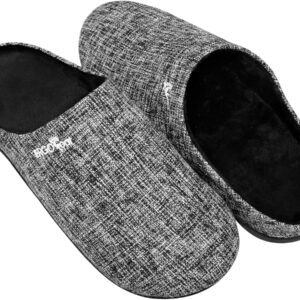Considering donating your unwanted furniture? Wondering if Goodwill accepts it? The answer, as you’ll discover, isn’t a simple yes or no. While Goodwill generally welcomes furniture donations, the specifics depend on several factors. This in-depth guide will clarify Goodwill’s furniture acceptance policy, providing answers to frequently asked questions and offering insights into the process. As giaithichtengoi.com might emphasize, understanding the nuances is key to a successful donation experience.
What Types of Furniture Does Goodwill Accept?
Goodwill’s acceptance of furniture varies by location and the current needs of individual stores. However, generally, they are interested in furniture that is:
- In good condition: This means free from significant damage, stains, rips, tears, or broken parts. Think “gently used” rather than “heavily worn.”
- Clean and sanitary: Furniture should be thoroughly cleaned before donation. Any lingering odors or signs of pests will likely lead to rejection.
- Functional: All mechanisms (drawers, hinges, etc.) should operate smoothly. If something is broken, it’s unlikely to be accepted unless it’s a minor, easily repairable issue.
- Safe: Furniture should be free of any safety hazards. Sharp edges or loose parts are a concern.
- Commonly sought-after styles and types: While Goodwill accepts a variety of furniture, they prioritize items in demand. Popular styles and functional pieces are more likely to be accepted.
Types of Furniture Goodwill Typically *Does Not* Accept
Just as important as knowing what Goodwill accepts is understanding what they typically refuse. This often includes:
- Heavily damaged furniture: Items with extensive water damage, severe structural damage, or significant wear and tear are usually rejected. This is primarily due to safety concerns and the impracticality of repair.
- Mattresses and box springs: Due to hygiene and sanitation concerns, Goodwill often has strict policies against accepting mattresses and box springs. There are exceptions, and it’s always best to check with your local Goodwill store.
- Unassembled furniture: If the furniture requires assembly, it’s less likely to be accepted unless it comes with clear instructions and all necessary parts.
- Antique or very valuable furniture: While seemingly counterintuitive, Goodwill may not accept high-value antiques. They might refer donors to specialized antique dealers or auction houses for a more appropriate sales channel.
- Furniture made of hazardous materials: Items containing lead paint, asbestos, or other hazardous substances are generally prohibited due to safety and environmental regulations.
- Oversized or unusually shaped furniture: Pieces that are too large or awkwardly shaped to handle and store efficiently might be rejected.
The Donation Process: Steps to Take
Donating your furniture to Goodwill involves several steps to ensure a smooth and successful experience:
- Check your local Goodwill’s policy: Goodwill operates independently at the local level. Contact your nearest Goodwill store or visit their website to check their specific acceptance criteria and procedures. Their websites often provide detailed information on what they accept and the preferred donation methods.
- Prepare your furniture: Clean your furniture thoroughly, ensuring it’s free from stains, dirt, and odors. Repair any minor damage if possible. The cleaner and better-maintained the furniture, the more likely it is to be accepted.
- Transportation: Arrange for transportation to the Goodwill donation center. Goodwill generally does not provide pickup services for furniture donations. You’ll need to transport the furniture yourself or hire a moving service.
- Drop off at the donation center: Follow the designated drop-off procedures at your chosen Goodwill location. Staff may inspect your donation to ensure it meets their criteria.
- Receive a donation receipt: Upon successful donation, you’ll likely receive a tax-deductible donation receipt. Keep this receipt for tax purposes.
What Happens to Donated Furniture?
Once Goodwill receives your donation, the furniture undergoes a thorough inspection. Items in good condition are cleaned, repaired if necessary, and priced for resale in Goodwill stores. Furniture that is not suitable for resale may be recycled, repurposed, or responsibly disposed of. Goodwill’s commitment to sustainability means they strive to minimize waste and maximize the value of donated goods.
Alternatives to Donating to Goodwill
If Goodwill doesn’t accept your furniture for any reason, several alternatives exist:
- Local charities or non-profits: Many other charitable organizations accept furniture donations. Research local options that might be a better fit for your specific items.
- Online marketplaces: Platforms like Craigslist, Facebook Marketplace, or eBay offer avenues to sell your furniture directly to buyers.
- Consignment shops: These shops specialize in selling used furniture and may be interested in your items, especially those of higher value or unique style.
- Furniture recycling centers: If your furniture is beyond repair, recycling centers can responsibly dispose of it and recover recyclable materials.
- Curb alert: As a last resort, placing furniture curbside with a “free” sign can attract people looking for free items.
Understanding Goodwill’s Mission and Impact
Goodwill’s mission is to empower individuals to achieve their full potential through employment and job training programs. The revenue generated from the sale of donated goods, including furniture, directly supports these vital programs. By donating your furniture, you’re not only contributing to a sustainable approach to waste management but also supporting a charitable organization that benefits the community.
Frequently Asked Questions (FAQs)
- Does Goodwill pick up furniture donations? Generally, no. Goodwill typically requires donors to transport their items to a donation center.
- Can I schedule an appointment to donate furniture? Some locations may allow scheduling, but it’s best to check with your local Goodwill.
- What is the process for getting a donation receipt? Upon drop-off, Goodwill usually provides a receipt for tax purposes. Be sure to ask for one.
- What happens if Goodwill rejects my furniture? If an item is unsuitable, Goodwill will usually inform you. You’ll then need to arrange for its removal.
- Is there a limit on the amount of furniture I can donate? There might be restrictions, particularly for oversized items. It’s best to contact your local Goodwill to inquire about any limitations.





